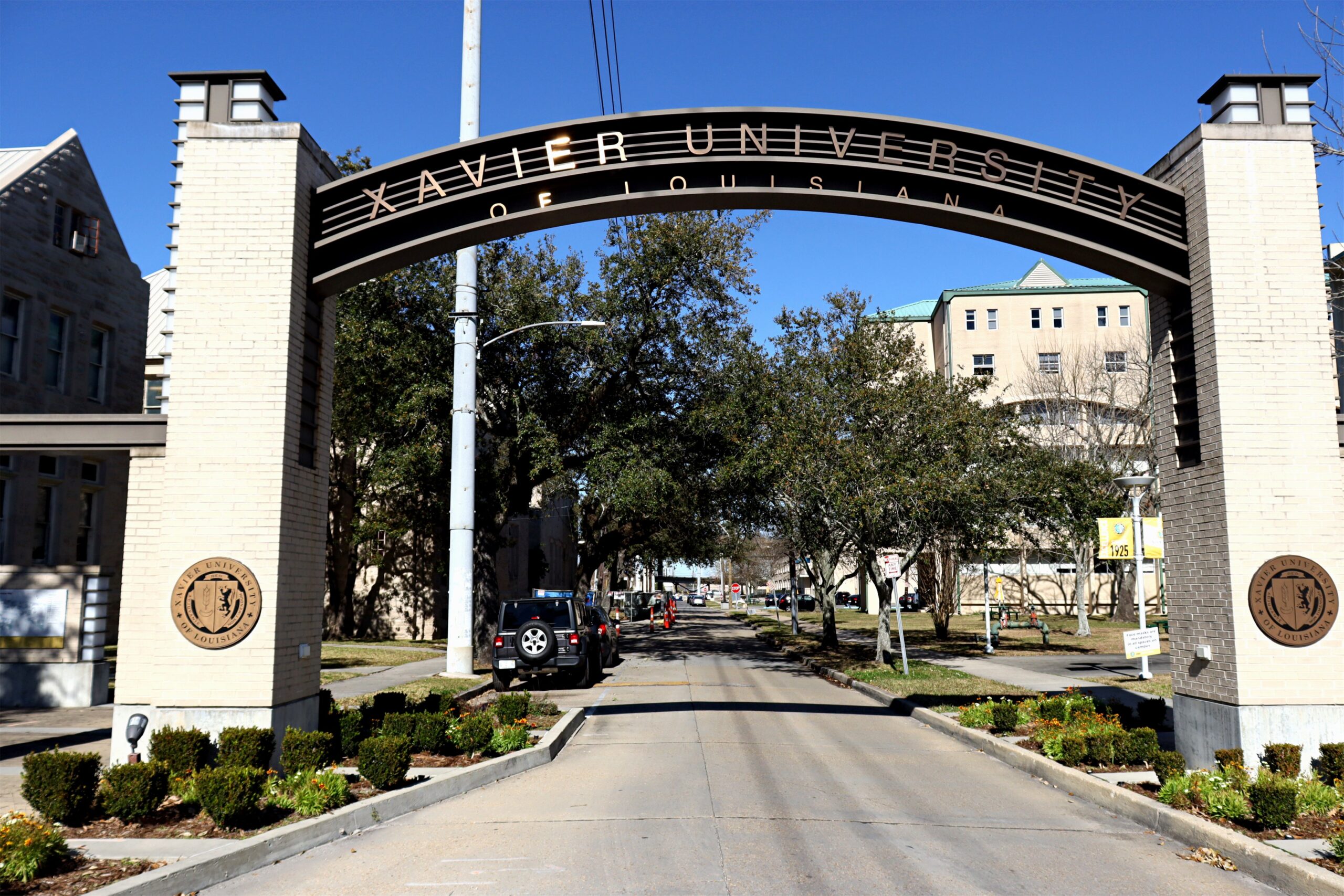Courtesy Xavier University of Louisiana
Xavier University of Louisiana has continuously pushed the boundaries of education and societal progression through its mission to create a more just and humane society. As an institution located in the Gulf Coast region, climate change greatly impacts Xavier and its local community in many ways, including the threat of increased hurricane and tropical storm activity and disruptions to electrical power. Seeking a more sustainable future, Xavier is on the front lines tackling climate change through research and innovation, an effort furthered through the university’s membership in the Louisiana Hubs for Energy Resilient Operations (HERO) collaboration. The Louisiana HERO collaboration was recently informed that it would receive about $250 million from the Department of Energy’s Grid Innovation Program; Xavier’s portion of this grant will be $5 million.
The Louisiana HERO project is one of 58 partnerships across 44 states selected for the United States Department of Energy Grid Resilience and Innovation Partnerships (GRIP) Program. Through a $10.5 billion investment, the GRIP Program aims to enhance grid flexibility, improve the resilience of the power system against growing threats of climate change, and ensure American communities have access to affordable, reliable, and clean electricity. The Louisiana HERO project is a collaborative effort among organizations and institutions across the state to reduce Louisiana’s carbon footprint and move the state towards cleaner energy solutions.
Dr. Ouloide Yannick Goue, an assistant professor in Xavier’s Department of Physics and Computer Science, is the principal investigator (PI) for the university’s HERO-funded project. Dr. Anderson SundaMeya, dean of the College of Arts and Sciences at Xavier, will be the co-PI.
“We are honored to be a part of the HERO project, a groundbreaking initiative that not only strengthens our community’s resilience but also paves the way for a more sustainable future,” said Dr. Sunda-Meya. “This award provides Xavier University with a unique opportunity to contribute to the well-being of our community and engage in meaningful energy and resilience discussions.”
The initiative’s goal is to create a more resilient community in terms of energy production by pivoting toward increased reliance on solar energy and battery storage. The implementation of this initiative involves a two-pronged approach: unfold a comprehensive, data-driven, integrated community energy planning process and deploy a modernized network of community resilience hubs powered by distributed energy resource microgrids.
The university’s project focuses on community/labor engagement, microgrid workforce development, and an integrated community energy planning process. Xavier’s location in the regional south, familiarity with power grid failure due to increased storms and hurricanes, and insistence on contributing positively to society through research made it an ideal place to contribute to this ecological research initiative.
An integral part of the Louisiana HERO project is introducing and maintaining energy operations that contribute to a more resilient community. In the wake of climate change and the increased threat of hurricanes, the Gulf Coast will encounter challenges to its traditional power infrastructure that can have negative ramifications. Projects such as the one in which Xavier is a part are trying to shape the future of power grid technology and operations in this region. This grant will give the university the ability to create systems that can fortify Southern communities, helping to make resilient.
“This initiative leverages a multistakeholder coordination framework with a vision to tackling the energy security challenges faced by the state and to protect the residents of Louisiana from climate-related threats, keeping in mind the need to reduce its carbon footprint,” said Dr. Goue.
Other organizations in the HERO collaborative include the Louisiana State Energy Office, Louisiana Public
Service Commission, Governor’s Office of Homeland Security and Emergency Preparedness, Center for
Planning Excellence, City of New Orleans, CLECO Power, Entergy Louisiana, Entergy New Orleans, NextGen Energy Partners, Southwestern Electric Power Company, Terrebonne Parish Consolidated Government, The Accelerate Group, Together Louisiana, and the University of Louisiana at Lafayette.

